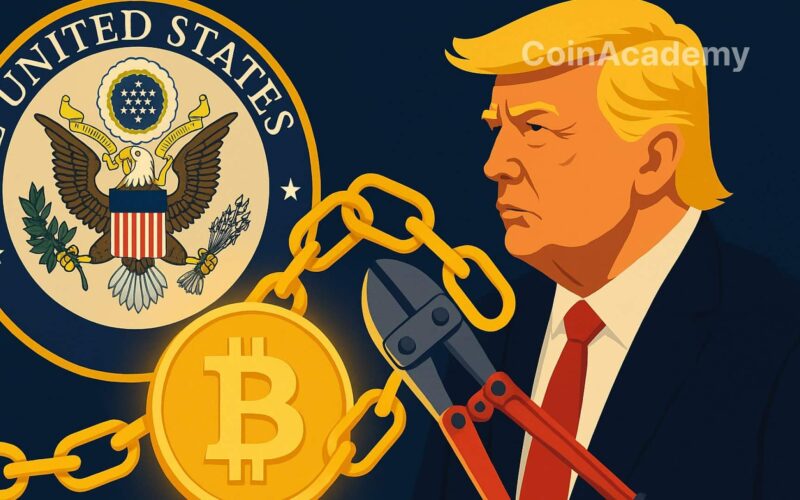The crypto division of the Ministry of Justice, the NCET, created in 2021, has been dissolved by the Trump administration, which deemed it coercive and misdirected.
The regulatory approach is changing drastically: the focus is now on pursuing malicious individuals rather than widespread surveillance of the crypto industry.
Donald Trump clearly displays a desire to make the United States a global leader in cryptocurrencies, with initiatives such as a national Bitcoin reserve and stablecoin bills.
The End of the National Cryptocurrency Enforcement Unit (NCET)
The flagship division of the American Ministry of Justice dedicated to tracking cryptocurrency-related crimes has been dismantled, marking a major turning point in the regulation of digital assets in the United States. The Trump administration, now in control, is deliberately moving away from the punitive approach of its predecessor.
In 2021, under the Biden administration, the National Cryptocurrency Enforcement Unit (NCET) brought together prosecutors specializing in cybercrime and money laundering. This elite group had made headlines in emblematic cases such as Tornado Cash, the crypto mixer, and the $100 million exploitation of Mango Markets by Avraham Eisenberg.
However, on Monday, a four-page memo issued by Todd Blanche, the current Deputy Attorney General and Donald Trump’s personal lawyer in 2024, ordered the immediate dissolution of the NCET. According to the document reviewed by Fortune, this unit should never have fallen under the jurisdiction of the Department of Justice. Blanche refers to the previous approach as an “irresponsible strategy” orchestrated by the Biden government to forcefully impose surveillance on the blockchain sector.
A Paradigm Shift for Crypto Regulation
The Trump administration is opting for a more flexible approach, focusing not on the technology itself, but on malicious individuals. Priorities are now being redefined: it is no longer about monitoring the industry as a whole, but targeting criminals who exploit weaknesses in the system to the detriment of investors.
This decision is part of a larger dynamic of reshaping federal agencies in the face of cryptocurrencies. In February, the SEC already announced the reduction of its own unit dedicated to enforcing laws on digital assets. Jorge Tenreiro, one of the institution’s leading crypto prosecutors, was moved to a technical department unrelated to financial enforcement.
Trump Wants to Make the United States a Crypto Capital
Behind this reorientation lies a campaign promise: to make the United States the global capital of cryptocurrencies. Since his return to the White House, Donald Trump has been making symbolic and regulatory gestures in favor of the industry. In March, he signed an executive order to establish a national Bitcoin reserve and ordered relevant agencies to develop a clear framework for digital assets.
Two stablecoin bills have emerged from this legislative impetus. The first could be presented to the President by the end of June, although its adoption is subject to possible amendments.
The dismantling of the NCET is much more than a mere administrative adjustment: it heralds a change of era. Trump’s America intends to break away from the wary stance of the Biden era, betting on innovation rather than repression to regulate the crypto universe.




